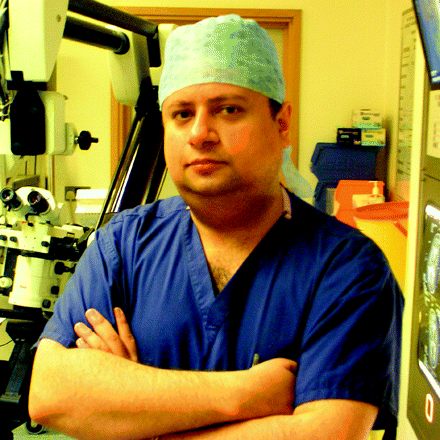January 03-2014

Keyoumars Ashkan, a neurosurgeon at King’s College in London, is leading the UK arm of an Anglo-American trial of a new treatment for brain cancers. In simple terms, surgeons remove as much of a tumor as possible. The tumor is then incubated in a lab alongside dendritic cells, which are specialist immune cells taken from the patient’s own blood. The aim is to teach the dendritic cells to recognize the tumor. The result is a personalized vaccine that is injected in the patient’s arm, with the hope that the cells will train others in the immune system to seek out and destroy the remaining cancer. Ashkan says, “Even if a tumor seems the same between two patients, the reality is they are very varied. So the ‘one-size fits all’ therapy is probably not optimal. There is a need to be able to deliver individualized treatment based on a patient’s own cancer type.” The trial involves patients with glioblastoma, the most aggressive form of primary brain tumor. Average survival time is just 12 to 18 months. Two previous small studies of the new therapy in the US found that it extended average survival time to three years. Twenty patients were involved—and two of them have so far lived 10 years. Ashkan stressed that the current trial, which will involve 300 patients in the US and Britain, is needed to show whether the treatment is truly effective. Half will receive the personalized vaccine and the rest dummy injections. “Until we get the results of this research, we will not know whether the therapy should be offered to all patients,” he said. Ashkan, 45, was born in Iran and arrived in London at the age of 16 to pursue his education, despite having minimal English. He decided not to spend his time in a language school, and just started teaching himself by immersing himself in English dictionaries, grammar books and phrase books. Amazingly, within a month he was able to pass the tests to enter a college prep school. He got his medical degree from the University of Wales College of Medicine and went on to get specialist education in neurosurgery in Toronto. He said, “Like most medical students, I thoroughly enjoyed university. I worked particularly hard in the preclinical years, which I am sure provided me with the discipline and foundation for later development. From early on, I had a particular affinity for neurosciences. I was fascinated by the way the brain, this mushy mesh of cells, controlled nearly every aspect of the human body, had the ability to construct or accommodate ‘the mind’ and yet still maintained vast areas of seemingly spare—although probably just so far unknown—capacity.” He said, “Luck was again on my side when I was allocated to neurology for my first clinical attachment.”





















